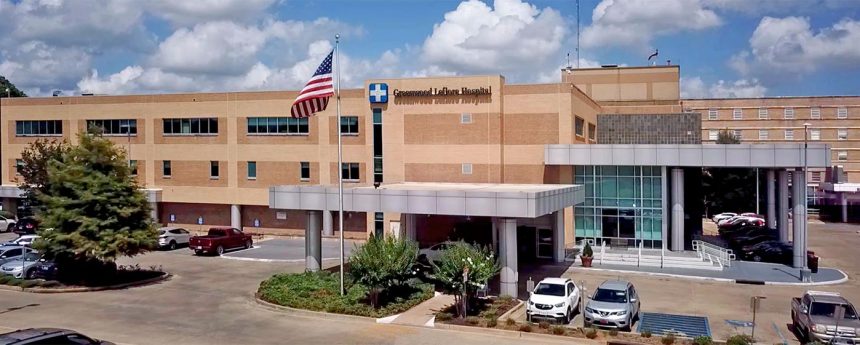The medical facility at the center of Mississippi’s hospital crisis has run into yet another obstacle in its attempt to stay open.
Greenwood Leflore Hospital interim CEO Gary Marchand has confirmed that GLH’s request to receive critical access hospital status has been initially denied by the Centers for Medicare and Medicaid Service’s (CMS) regional office in Atlanta.

While the national CMS office in Washington, D.C. could still override the decision – which would have opened GLH up to a significant amount of federal funding – Greenwood Mayor Carolyn McAdams said in a recent interview that the best-case scenario without critical access status is the hospital gets leased out.
“The county and the city decided that since we don’t all of our eggs in one basket, so to speak, we did reach out and do a [request for proposal], and that has gone out,” McAdams said. “So, hopefully, someone might reach out. I don’t know.”
Although officials in Greenwood have not revealed if there are currently any suitors to lease out GLH, McAdams reiterated her belief that the struggling hospital would not be in as bad of shape if lawmakers passed Medicaid expansion.
“We’ve lost so much money by not receiving Medicaid expansion,” McAdams said. “Like I’ve said before, even the critical access would not fix the entire problem, but it would certainly go a long way and so would the expansion of Medicaid.”
“We wouldn’t be really in this critical of a situation if we had had some Medicaid help. I mean we really, we would not. Not saying that we would be out and be in the black, but I’m just saying it would have gone a long way.”
Mississippi, one of 10 states that has not adopted Medicaid expansion, would open itself up to an estimated $1.61 billion in first-year revenue as well as provide health coverage to over 200,000 individuals if expansion was implemented.
The idea of Medicaid expansion, which is often misreferred to as “Obamacare,” has been a point of political polarization in Mississippi with Democrats avidly fighting for it as GOP members argue that the state, which is the second-most dependent on federal dollars in the U.S., does not need to rely on more assistance from Washington D.C.
During the most recent session, the Republican-led legislature nixed 17 bills that would have expanded Medicaid. However, multiple GOP lawmakers have confirmed to SuperTalk Mississippi News that they expect the matter to be revisited this upcoming session.
In the meantime, GLH will work to survive on its $10 million line of credit along with millions in government grants as the search for a lessee and hopes of a CMS change of heart moving forward. Without either, Marchand expects the hospital to close its doors for good by early 2024.
“We are not aware of any other funding sources that would allow for the hospital to continue in operation,” Marchand said prior to the decision from CMS. “The cost protection afforded by critical access status is key to our ability to remain in operation over the short and long term.”
Since January 2022, GLH has been forced to close a handful of services – including labor and delivery, urology, neurosurgery, and COVID-19 – while laying off roughly 150 employees to cut costs. Officials also attempted to get the University of Mississippi Medical Center to take over last fall with negotiations coming to an end in November.
J.T. Mitchell contributed to this report.







